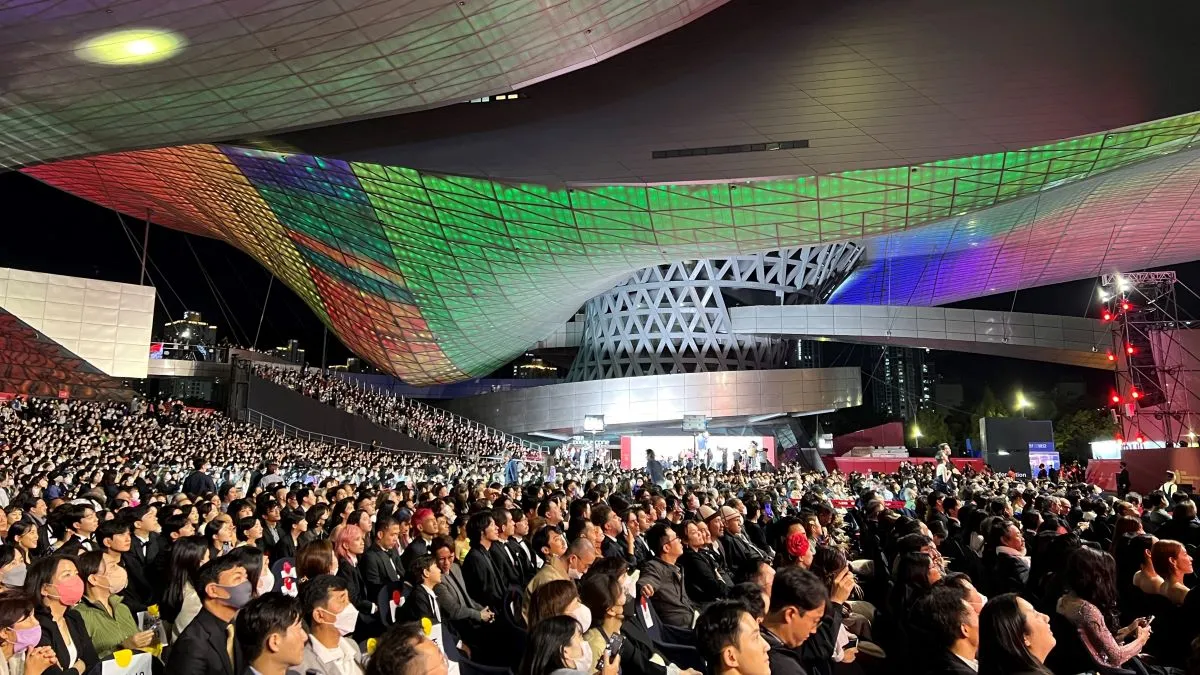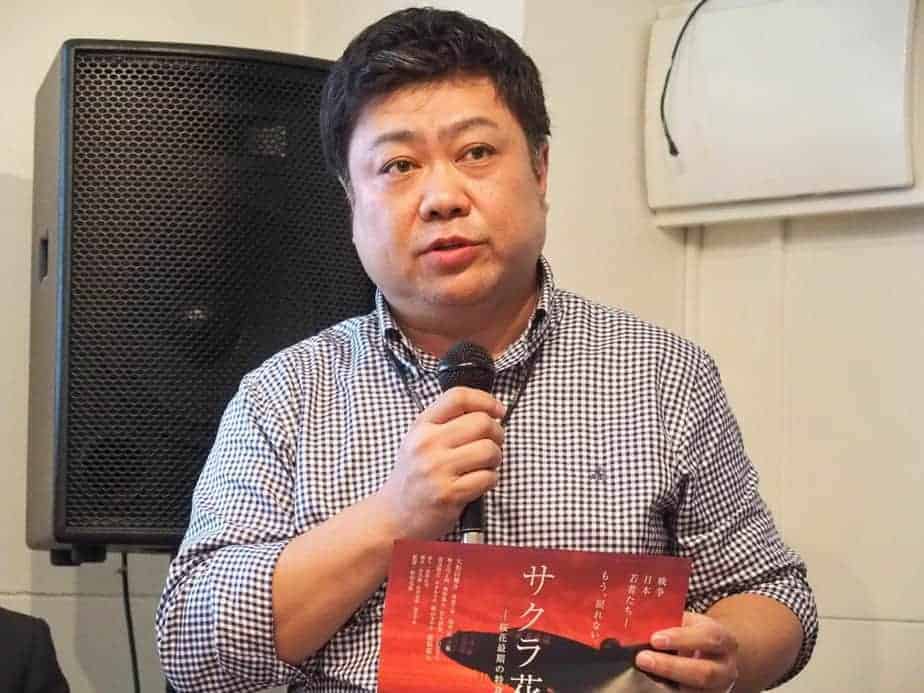Lee Yong-kwan graduated in film studies from Chung-Ang University. As a teacher, he successively held several positions at Chung-Ang University and the Central Academy of Drama in China. He is also director of the Seoul Short Film Festival, president of the Seoul International Youth Film Festival and the Busan Cinematheque. He is one of the main founding members of the Busan International Film Festival, of which he was the chief programmer from its inception. After having been for five years the co-director of the Busan International Film Festival with Kim Dong-ho, he is since 2010 the sole director of the Busan International Film Festival.
On the occasion of his presence as Chairman of the International Jury in Fica Vesoul, we speak with him about the state of BIFF, the late Kim Ji-seok, Parasite, Hong Sang-soo, the impact of the streaming services and many other topics

First, there were the problems with the government, then Kim Ji-seok's death happened, then it was the pandemic. Would you say Busan has managed to recover?
We can now say that we are in the state we were in 2012-2013. We can cooperate with the government without problems and also with Busan city.
How would you describe the current financial status of the festival?
We can say that there is almost no problem now.
Are you satisfied with the documentary about Kim Ji-seok?
The production of the documentary is very meaningful and for me, it is important that it allowed more people to know about Kim Ji-seok. We also have plans to realize a number of projects Kim wanted to complete.
Can you elaborate on that?
We have already established the Kim Ji-seok award, whose purpose is to help the cineaste of Asia and we also have established the Jiseok Film Institute. This year, we are going to organize some forums because it is something Kim Ji-seok wanted to do.
The Korean movie industry is mostly known, particularly in the West, for films that are violent and male-driven, crime thrillers let's say. However, in the years before the pandemic, through an initiative of Busan film festival, a lot of excellent films by female directors have started to screen both in Busan and abroad, with House of Hummingbird and Moving On being particularly successful, internationally. Is this effort continuing?
Busan has indeed placed some importance on female voices that are meaningful. Women are part of the history of Korean cinema, as we saw their emergence during the Korean New Wave, something that also occurred after 2010. It is only natural that BIFF shows interest for female voices. We saw even more female directors lately, who produce mostly documentaries or low budget indie films, so BIFF wants to support them in order for them to become more impactful and expand their domain
How can you explain the success of “Parasite”?
Bong joon-ho's case is a unique one for a Korean director, because his films are artistic but he can also ensure their popularity. We can compare Bong with Im Kwon-taek, instead of Lee Chang-dong and Hong Sang-soo for example, because their films have artistic value, auteurism but regarding their popularity, it is difficult for them to attract big audiences. So that is the first reason, Bong stands out, because he can combine auteurism with popularity.
The second reason for the success of “Parasite” is his perspective, that his film has a specific Korean flavour but he could also touch more universal themes. We see how Bong joon-ho fared in Hollywood and Europe, for international audiences. “Parasite”, however, was not so popular in Korea, so for Korean spectators, Bong Joon-ho will have to do something else in order to become popular. We can compare Bong Joon-ho to Park Chan-wook, who is popular both internationally and in Korea. Park Chan-wook's films however are more artistic, and there are some Korean spectators who think that his films just aim for international festivals. Before “Parasite”, Bong Joon-ho was a director who could ensure popularity and artistry but for me, “Parasite” showed that Bong Joon-ho's movies are more artistic than popular and it will be his duty to change that.
Check the review of the film
Since you mentioned Hong Sang-soo, how do you describe his success within the festival circuit, considering that his film are so similar?
As you said, Hong Sang-soo's movies are similar because he talks about everyday life. His movies are very popular in Europe but not in Korea. At first, we compared Hong Sang-soo to Eric Rohmer, but now he has managed to say something beyond Eric Rohmer in his films. I also wanted to stress that there are filmmakers like Park Chan-wook and Hong Sang-soo who have artistic value and auteurist value but on the other hand, there are other directors who are quite popular. For me, that is the power of Korean cinema, that there is a wide spectrum of filmmakers.
Are you optimistic regarding the future of Korean cinema beyond these filmmakers?
Until now, I had some optimistic notions about Korea's cinematic future but now, I have some questions, due to the impact of streaming services. Now in Korea, theaters have some problems due to the emergence of these services, because there are fewer spectators than before. It is difficult to predict the future of Korean cinema because of the pandemic. If there was no pandemic, even with the emergence of streaming services, we could predict more easily, but now it is a little more difficult. I was optimistic, but now I find it more difficult to retain this attitude. According to Korean cinema history from 30 years ago, I think the power of Korean cinema will still be there for ten or twenty years.
What is your opinion of Netflix, Amazon etc investing in Korea and producing content?
The presence of streaming services is a significant problem for Korean cinema. Their investments are necessary but we have to ensure a state of harmony, for example the streaming services could help some younger generations of cineastes to reach international audiences and also, in cooperation with the streaming services, we can reach new markets. Because the national market in Korea is not so big, and at the same time, the industry is getting bigger and bigger, therefore we need some new markets.

Do you feel that the streaming services have also affected the festival?
In BIFF, we present content that was screened in streaming services and the reaction is good, but we have some questions about it, regarding whether we will continue to screen these dramas and these movies from streaming services. Because there is the issue of the boundary between what is a movie and what is online content. The openness of online content can cause some difficulties for movies. There is also the problem with online screenings. I mean the question of if online screenings is something that festivals should adopt, because in offline screenings, there is human communication. However, online screenings are becoming more and more common, and we have to solve this problem.
In Korea, there is a well established star system, which has helped local cinema even on an international level. What is your opinion on the whole concept?
The star system in Korea does not only concern movies, it is about the Korean pop culture. In the country, it works strongly, as in the case of K-pop and K-drama and it is what attracts the younger generation in the industry. It also works across Asia, with Korean stars being popular and loved, particularly in China and Japan. But the problem is that if you compare the Korean star system with Hollywood, you will see that the latter has more impact internationally. If we want the local star system to reach that level, we have to work towards China. The problem this time, though, is that the Chinese government does not allow the distribution of Korean content in the country legally. There are Korean stars who are loved by the Chinese, but we cannot go beyond them, for now.
In other words, we need to expand the Korean star system from Korea and the neighboring countries to even further places. As younger generations see the success of Korean pop culture and they decide to work in show business, what I mentioned will probably become easier to achieve.
From those four filmmakers that we mentioned, Bong Joon-ho, Park Chan-wook, Lee Chang-dong and Hong Sang-soo, whose movies do you like the most?
Bong Joon-ho, for no reason (laughter). Perhaps because he is the younger one and his movies are both artistic and have universality.














